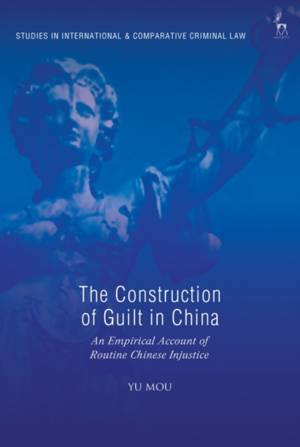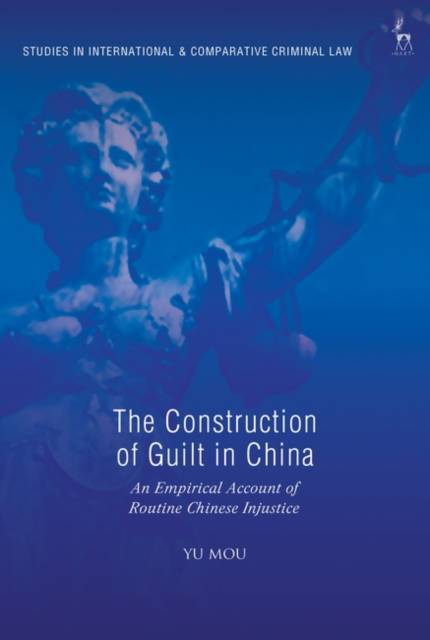
- Afhalen na 1 uur in een winkel met voorraad
- Gratis thuislevering in België vanaf € 30
- Ruim aanbod met 7 miljoen producten
- Afhalen na 1 uur in een winkel met voorraad
- Gratis thuislevering in België vanaf € 30
- Ruim aanbod met 7 miljoen producten
Omschrijving
Drawing on insights from the author's own empirical data obtained from systematic observation of the daily routines within Chinese criminal justice institutions, this ground-breaking book examines the functional deficiency of the criminal justice system in preventing innocent individuals from being wrongly accused and convicted. Set within a broad socio-legal context, it outlines the strategic interrelationships between key legal actors, the deep-seated legal culture embedded in practice, the deficiency of integrity of the system and the structural injustices that follow. The author traces criminal case files in the criminal process - how they are constructed, scrutinised and used to dispose of cases and convict defendants in lieu of witnesses' oral testimony. This book illustrates that the Chinese criminal justice system as a state apparatus of social control has been framed through performance indicators, bureaucratic management and the central value of collectivism in such a way as to maintain the stability of the authoritarian power.
The Construction of Guilt in China will appeal to academics, researchers, policy advisers and practitioners working in the areas of criminal law, comparative criminal justice, criminology and Chinese studies. Winner of the 2020 SLS Peter Birks Prize for Outstanding Legal Scholarship.Specificaties
Betrokkenen
- Auteur(s):
- Uitgeverij:
Inhoud
- Aantal bladzijden:
- 280
- Taal:
- Engels
- Reeks:
Eigenschappen
- Productcode (EAN):
- 9781509913022
- Verschijningsdatum:
- 2/04/2020
- Uitvoering:
- Hardcover
- Formaat:
- Genaaid
- Afmetingen:
- 156 mm x 234 mm
- Gewicht:
- 557 g

Alleen bij Standaard Boekhandel
Beoordelingen
We publiceren alleen reviews die voldoen aan de voorwaarden voor reviews. Bekijk onze voorwaarden voor reviews.











